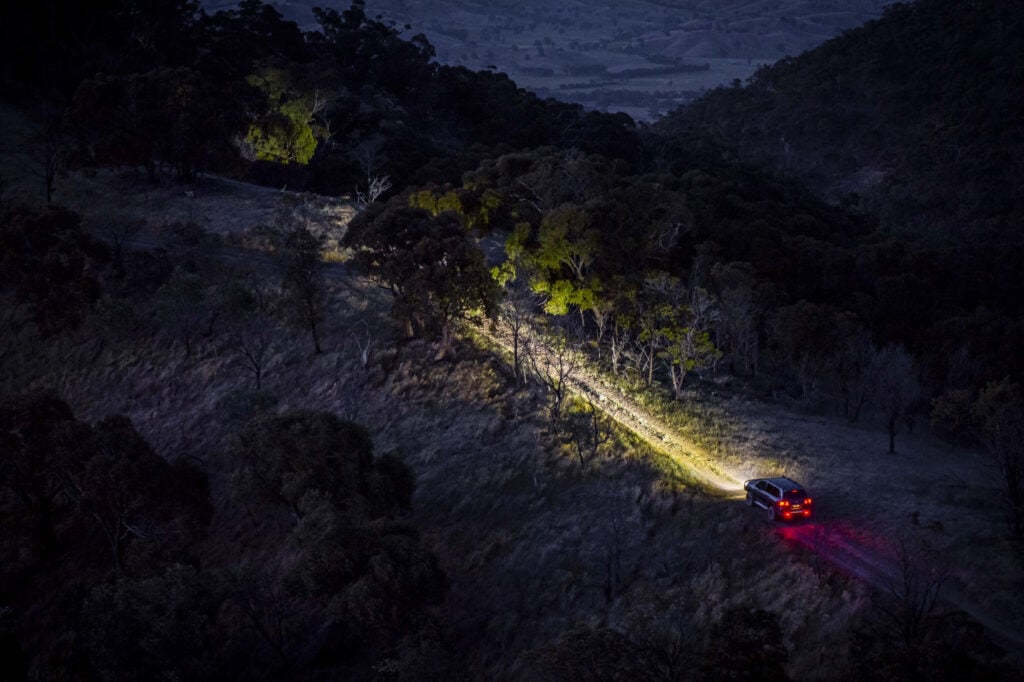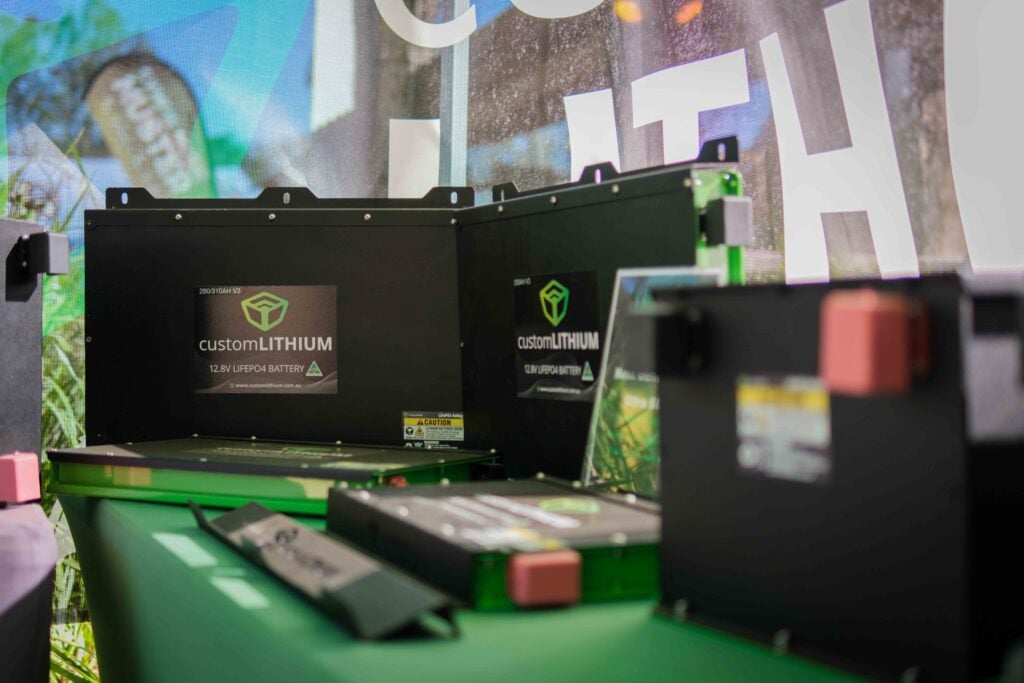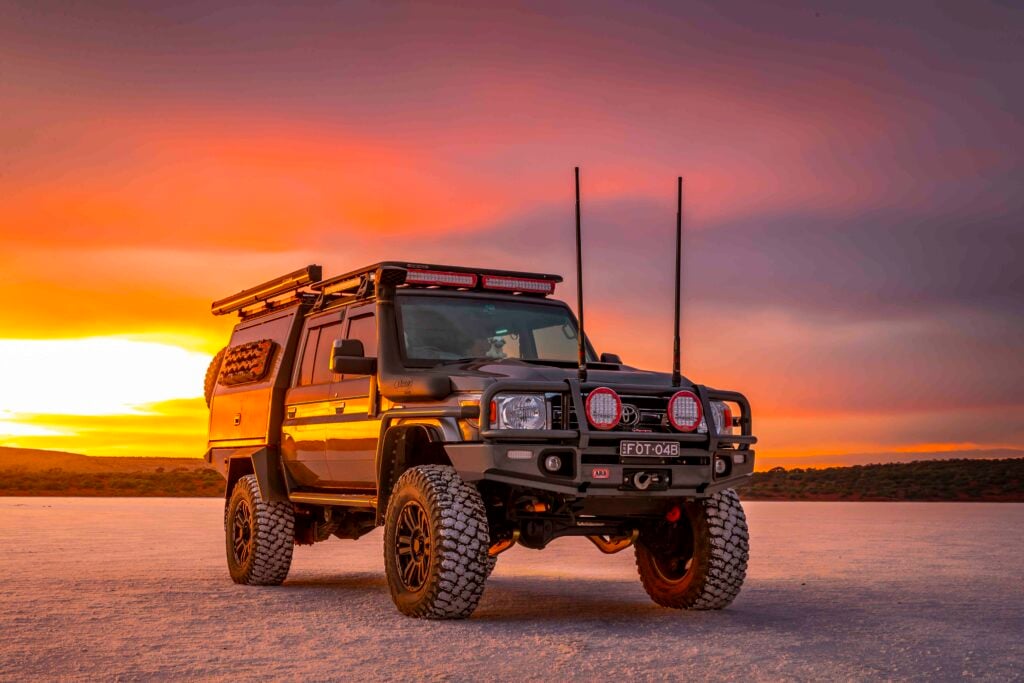Enroute to Kowanyama a couple made the headlines last year when their vehicle was washed away by rising floodwaters when crossing a creek.
They were stranded in the Gulf country and made the headlines when they told their rescuers and the media that a crocodile had stalked them during the night. Their 4×4 washed away but they managed to get onto the bank, along with their dogs, stranded in a wilderness for three days that was ruled by roaming wet-season storms with no shelter or food, and no chance of walking out or being rescued because no one knew where they were.
In desperation the couple used a stick to scratch a large SOS on the damp road and made a rough night shelter hoping that somehow help would arrive… and it did, in the form of a helicopter that had been asked to keep an eye out for them after friends reported their non-arrival at the community. They survived the humid nights and 40°C days because they kept their wits, made a rough bush shelter from leaves, drank water from the creek, and avoided a crocodile that they said stalked their camp during the night.
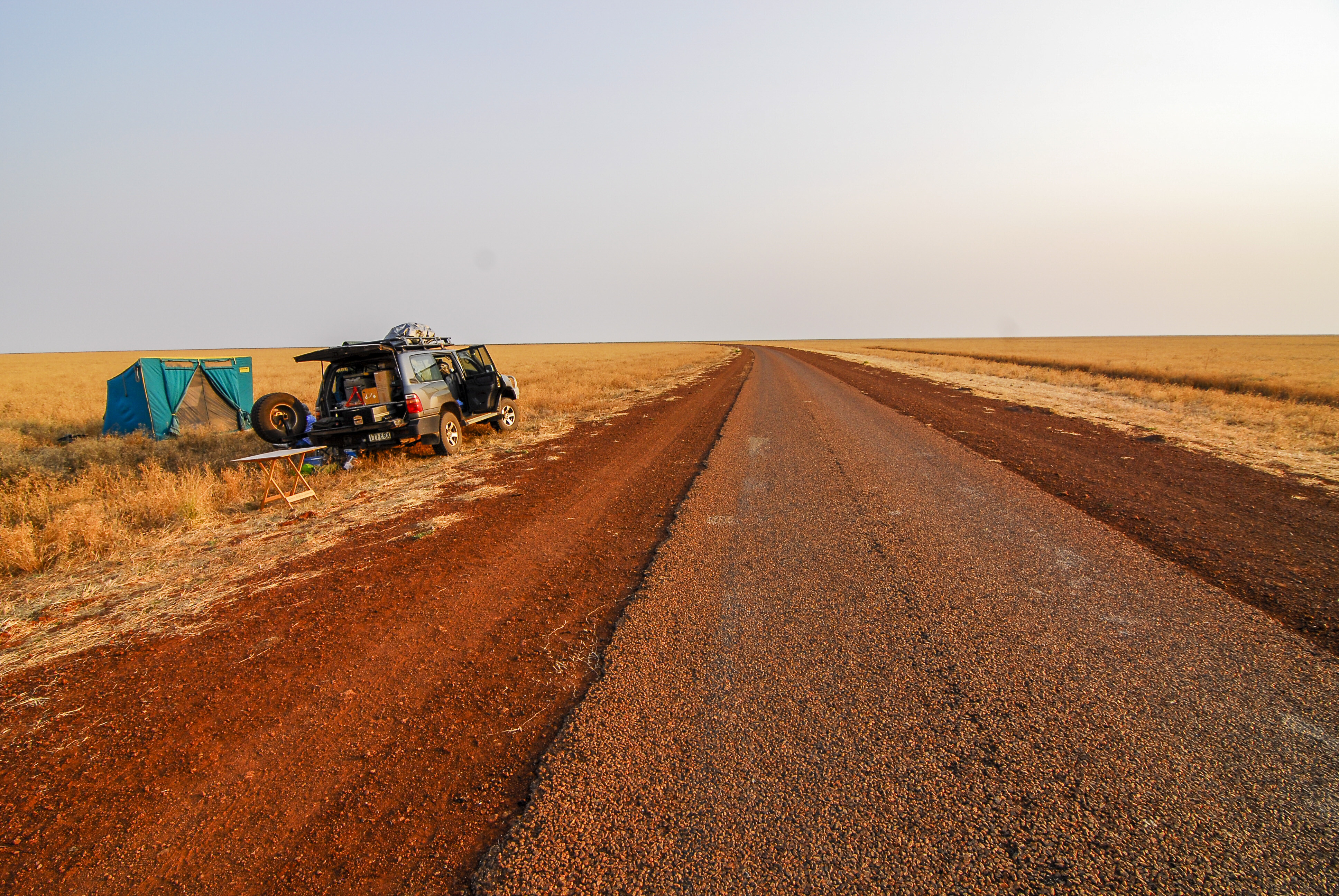
Years back I was part of an aerial search party that found two stranded bushwise fishermen whose boat had broken down on the shores of the Gulf of Carpentaria northwest from Burketown. They also had scratched a large SOS on a beach above the tide line where they had spent seven days before they were reported missing, resulting in a wide-spread search. They survived on the food they had and what they caught, made a freshwater still and waited for help to arrive, as it was impossible to walk out being surrounded by mangrove creeks and swamps alive with crocodiles.
People get lost and survive, others don’t, like two men who died walking 15km to a station after their LandCruiser broke down when they were doing water bore maintenance. They had no water, and the intense summer heat sapped the strength from their bodies and minds. They did a ‘perish’, as bush people call it. A German couple in the aptly-called ‘Dead Centre’ near Alice Springs became dry bogged in hired 4×4, no one knew about them, they attempted to walk out and also perished.
These and other sad bush deaths could be avoidable if the victims had used common sense like the lost Gulf people, remained with their vehicles and more importantly let someone know of their plans so the alarm could be raised when they didn’t check in at an allocated time. Most of all, people who have survived such ordeals did the right thing: remained with their vehicles and used common sense while waiting for help.
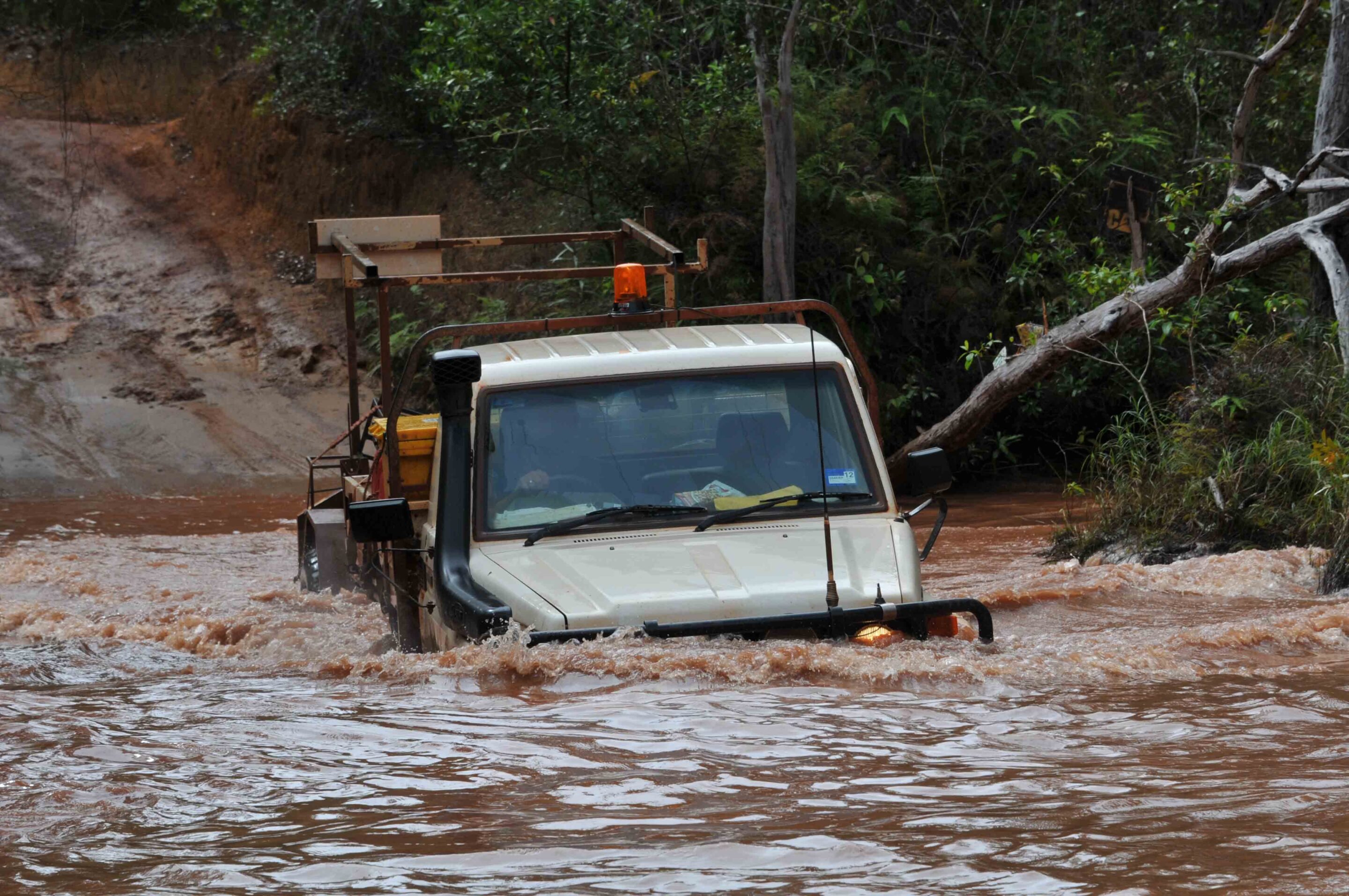
Others just happened to get lucky, like the bloke who wandered out of the hills onto the Kajabbi Track years ago when a mate and I were chasing reptiles for his collection. He was an elderly man from Mount Isa who had been prospecting on horseback. One night the horse broke its tethers and galloped away after it was harassed by dingoes. He had no idea how long he had wandered about the spinifex-clad hills.
Luckily it was the start of the wet season and seasonal storms had run creeks, in what’s called a ‘fresh’ in the bush, that left pools of water on which he had survived, along with the little food he had with him, plus a raw lizard that made him very ill. It was lucky that I spotted him and more so that we dropped him off at home where a worried family welcomed him.
Due to my knowledge of the Mount Isa and Gulf country regions I was involved in several searches decades ago, some that did not end well. We found the bones of a prospector that had been picked clean by dingoes and crows who had been reported lost 10 days before in the Kajabbi area. There were others, some intact, others eaten by animals, but the one thing that has always lingered in my nostrils is the smell of death…
Be prepared, and don’t panic
People perish in the bush when they panic because they have become lost but the best way to stay out of trouble is to have a bush-worthy mechanical-fit vehicle, spare parts and tools, and basic bush-mechanic knowhow, as well as food, water, good tyres and communications.
You should always let someone know where you are heading and be in regular contact if possible, which is easy these days with modern communication systems. You should also know where you are when talking to other people. The modern GPS is a wonderful tool, but if it fails you may have no idea of your whereabouts; carry a compass and paper map if you are in unfamiliar country.
If you are unlucky and unable to contact anyone stay with your vehicle, if you have one, or as the case of the Gulf country flood victims demonstrates, stay on the road, build a shelter, mark the location with a large SOS on a bare surface – you can use sticks and stones – build a smoke signal fire, and live off the land until help arrives as a couple did in the Simpson Desert when someone came across them and their vehicle several days after they broke down. They were alive and well.
The Personal Location Beacon (PLB) is an amazing life-saving tool that has saved several lives in the bush. You’re mad if you don’t have one when in the wilderness.
Wait for help
When waiting for help, stay with your vehicle; it’s easy to spot from the air, a person is not.
People who have been reported missing and stay with their vehicles are usually found within two days. Of course, if you are absolutely certain that help is nearby and that you have the fitness and resources to survive the hike, do it by all means.
A bloke did that in Arnhem Land, only to be attacked by dozens of camp dogs when he walked into an Aboriginal outstation. He was lucky to survive and it’s something to be aware of when walking into camps and house yards. Another factor is that you may have to camp on high ground when the country is flooding. That is not always possible on flood plains, so keep in mind that the vehicle roof is the highest point, and that the vehicle offers shelter when the weather sours and the night turns cold.
If you have bright clothing or a tarpaulin wear and use it; bright colours will attract searchers. If you have a camo vehicle and clothing to match you will be hard to spot from the air, especially on timber-lined bush tracks.
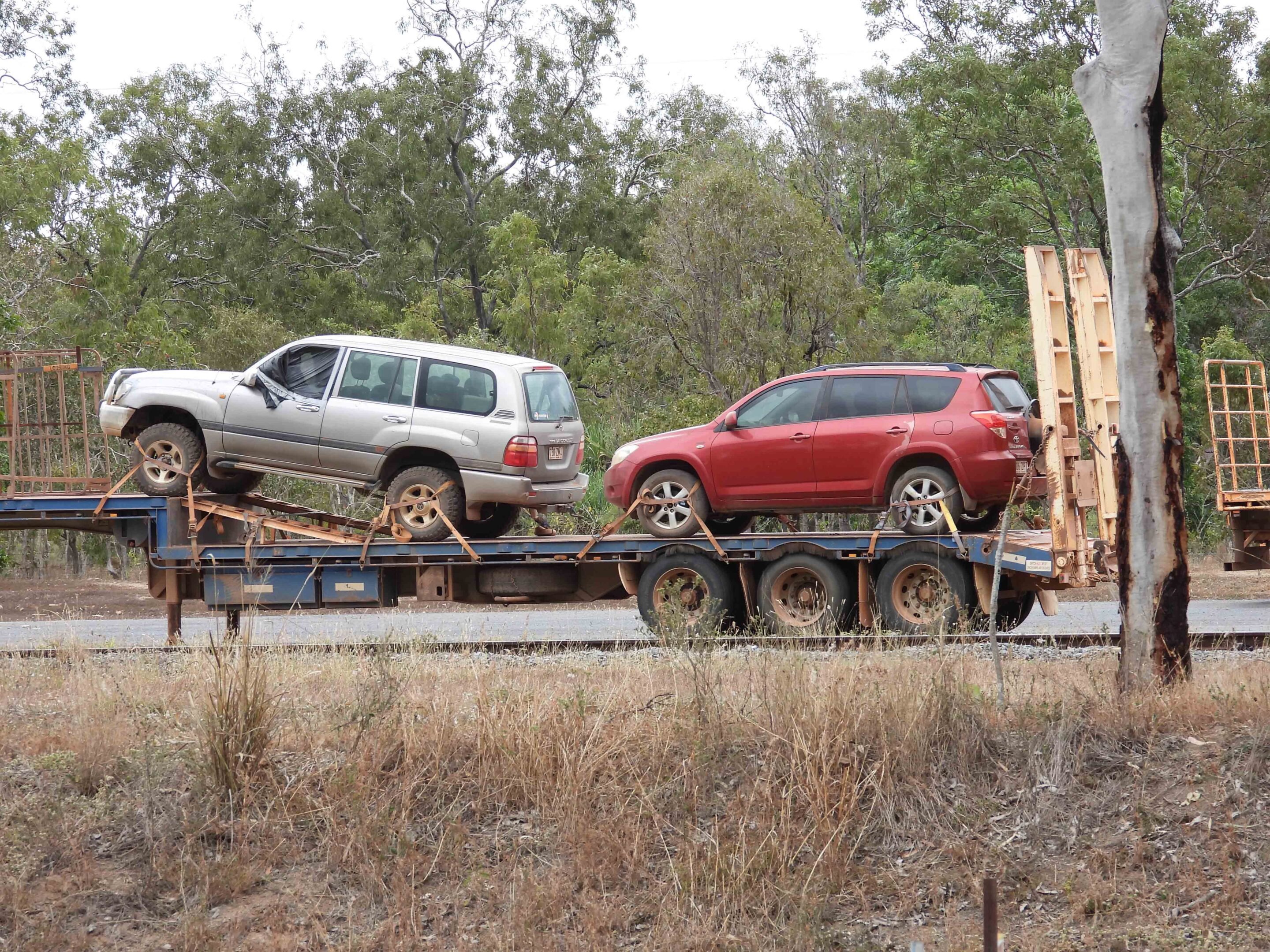
Carry plenty of water and food
You won’t last long if you are stranded in the desert with 40°C+ heat if you have no water.
Water is the essence of life, so carry plenty of it in different containers because if you break one you will have others for back-up. While food is important, people have lasted for days without it by only drinking water.
There is much fear-mongering about drinking bush water, but when you are thirsty it matters little if it comes from a swamp or a clear-running stream; drink it to stay alive. One family survived on muddy water for days when broken down on a bush track. Rescuers were amazed that they drank the brown-coloured water in the dirt road table drain. One bloke said they did that because they were Indigenous, but that is wrong, others would have done the same thing and walked out.
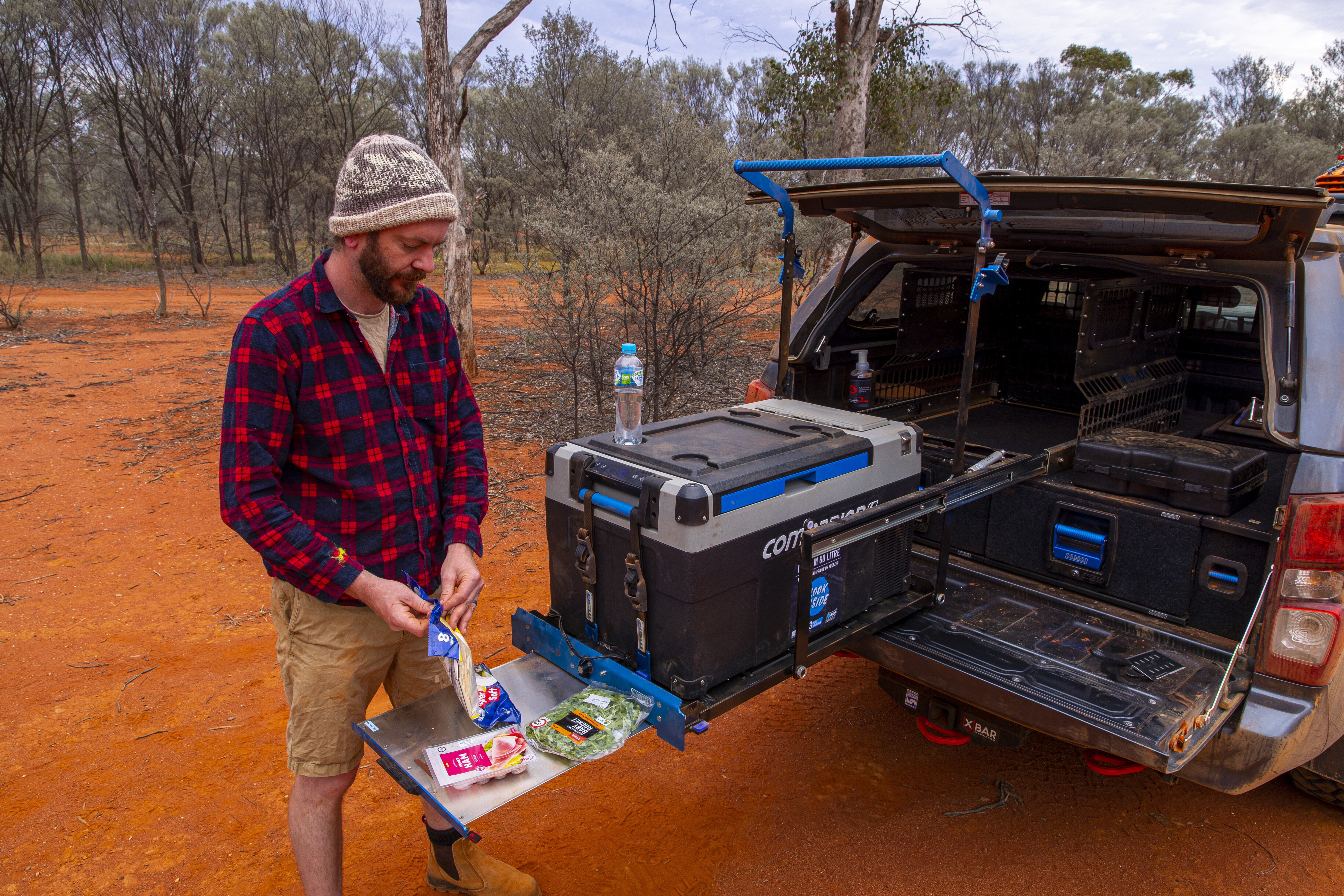
You can clear dirty water by boiling it (if you have the resources to do so) and tossing a handful of hard ashes into the billy and letting them settle. It does not taste that good, but it’s better than mud. If you have perishable food it can be kept longer by digging a hole and covering it or hanging it from a high branch in a hessian sack. Be aware that animals may be attracted to it if they can smell it, so ensure it’s out of reach.
Always take extra food when heading into the bush; flour, tinned and dry food is excellent survival food, but if you break down use it sparingly in case you end up staying longer than anticipated. A damper will last for several days depending on the numbers. But water is the one thing that you need to preserve, especially when it’s limited to what you have.
In the tropics crocodiles are a danger you must be acutely aware of when near or in water. But if crocodiles are present it means that fish are too, a good reason to have a fishing line and hooks in your survival kit. As a hunter I carry a firearm and have used it and my fishing gear to keep the food supplied on extended fishing and hunting trips, along with crab and red-claw lobster pots. It saves me from carrying a lot of food on long bush trips.
Unless you have a medical condition the chance of starving is remote because the body can go a long time without food. It’s one way of losing unwanted weight. However, the body needs water, and lots of it when heat and humidity prevail. Without it you will die within a day or two. No, you can’t drink water from the radiator, it will kill you; modern vehicle cooling systems use coolant that contains toxic additives and more.
Our deserts are unforgiving and unless it rains lost people generally die before they are found if not reported as missing. Remember to let someone know where you are when traveling in remote regions. In mountain, forest and open plains country the chances of having bush water is excellent. Boil it before drinking it or carry water purifying tablets in the first aid kit. There are also filters available that filter out unwanted parasites that can kill you.
Some water can be produced by digging a hole and placing green leafy branches in it, plus a container. Place plastic over it and put dirt on it around the hole to keep it in place. Punch a hole in the center that lines up with the container. Perspiration inside the hole from the leaves builds up enough moisture to get a little water that may save your life. It’s actually a sun still that also purifies water by distilling polluted (not chemicals) water, even saltwater and urine, when placed in a container inside the hole with leaves.
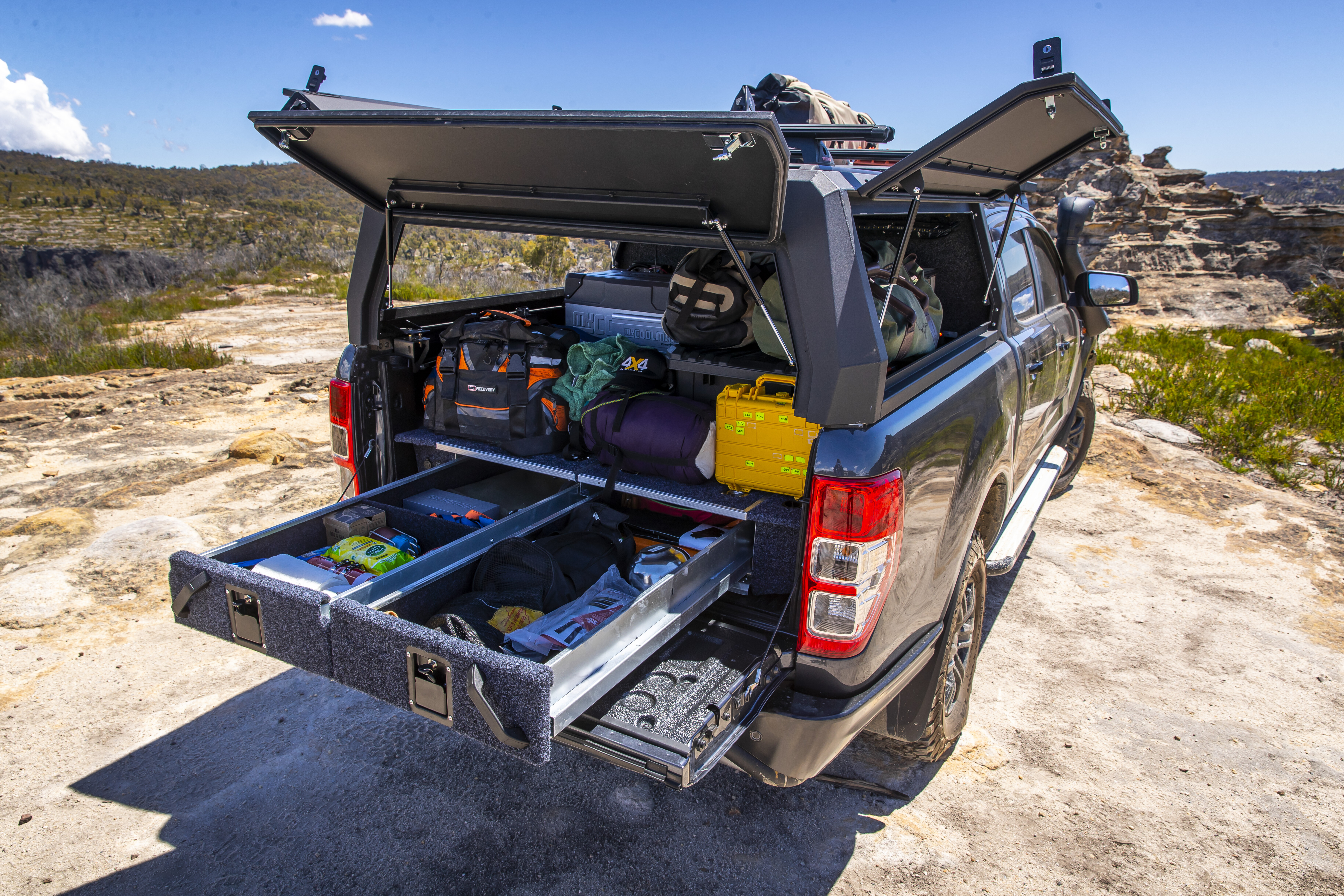
More handy tips
I went hunting with a few mates some years ago, none of us smoked, yes you guessed it we had no matches or any other form of firelighter in the 4×4. Instead, we used a petrol-soaked rag over the battery and sparked it with a screwdriver. Worked just fine and may work with diesel also, but I now carry a back-up… just in case.
Years back a group of us got caught in unseasonal rains on the black soil country near Burketown. We spent seven days waiting for creeks to go down and a grader to tow us to better roads. We had plenty of food while water was no problem, though we did run out of beer and rum. One memorable comment was from a mate who had his wife along on the trip when he said that they found it difficult for a few days when they got back home as they had become used to making love in a tiny tent and the mud.
We recommend
-
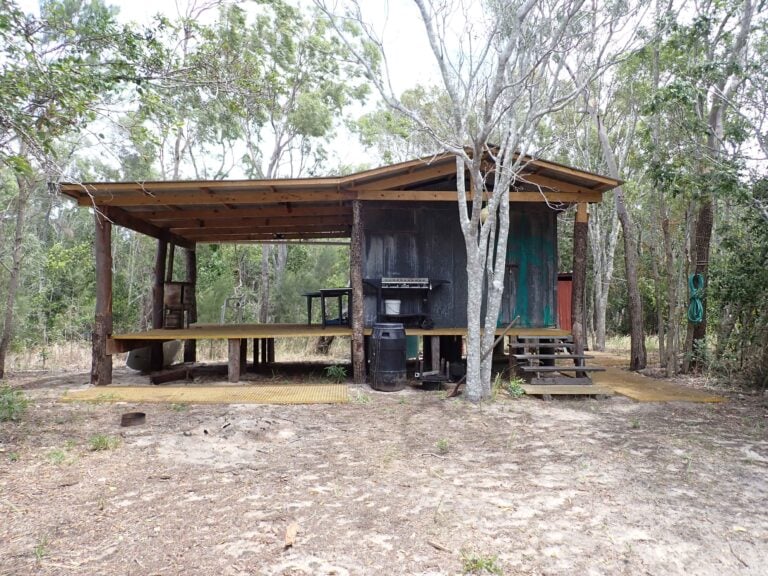 News
NewsIllegal 4WD camp busted on Curtis Island – fines issued over unauthorised cabin in protected National Park
Rangers have uncovered a hidden retreat on Curtis Island, built with felled trees
-
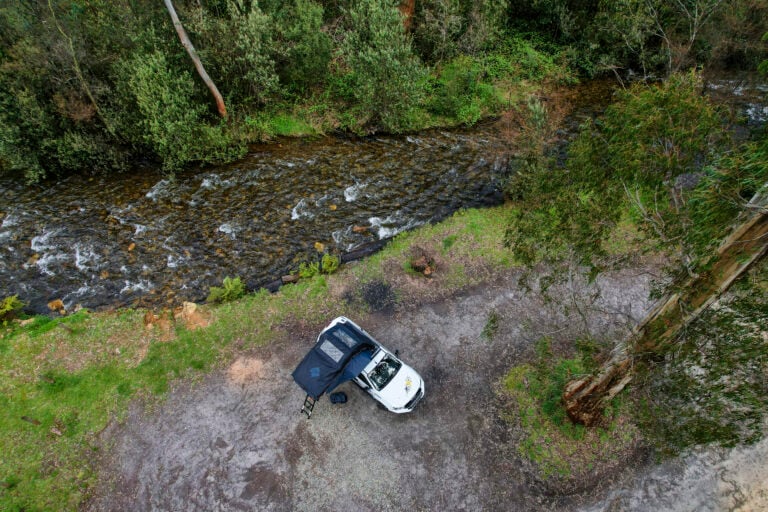 News
NewsLocals lead crackdown on illegal campers in Noosa
Community tip-offs led to a blitz in Noosa, with more than 30 illegal campers slapped with fines
-
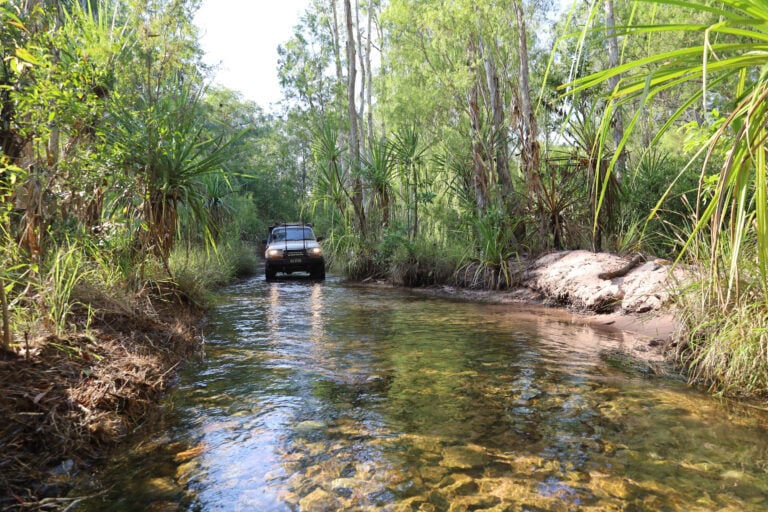 News
NewsLitchfield National Park set to expand by more than 20 per cent
Litchfield National Park is set for its biggest expansion in decades, unlocking new 4WD tracks, waterfalls, and camping areas in the NT's Top End



